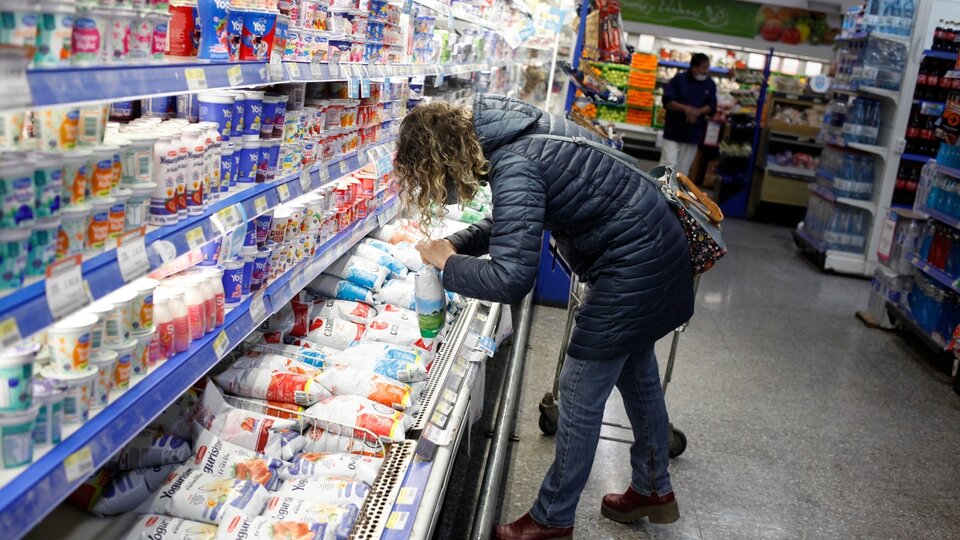In corporate violations of price agreements, the Department of Internal Trade fined two multinational corporations $1 million for diverting Fair Price products to local and neighborhood businesses for resale at higher prices than those who have to market them in large supermarkets. These sanctions come just before the intersectoral table that the Minister of the Economy, Sergio Massa, intends to put into practice this weekend to try to stabilize the prices of the basic basket, very strongly put forward after the race for change.
According to the information, Commerce fined Coca Cola and French food company Danone for serious irregularities in price markings. In addition, several cases of other food giants with the same behavior taking advantage of the blind sides of the executive to speculate on prices are being analyzed.
During an inspection operation in local businesses, the portfolio led by Matías Tombolini confirmed that the Coca Cola and Danone companies were selling their products with increases above those established by fair prices. What is striking is the level of these increases, which is almost exponential and well outside the agreements reached by Minister Sergio Massa and the food and drink sectors.
The data seen by this newspaper indicates that there have been increases of up to 32.5% per month, when in reality the fair price agreements mark an authorized upward trajectory of 3.2%.
To arrive at this information on the increases, Commerce managed to have the invoices of the suppliers of these two companies delivered by the local and neighborhood stores and it was verified that they were selling their products with a higher increase than that established in l price agreement. Faced with this violation, the Commerce sanctioned Coca-Cola and Danone for respectively 40 and 45 million pesos.
Cross profitability and complex picture
The government-sanctioned behavior is just a sampling of a methodology this newspaper has been counting for months. Large companies agree with the government on a trajectory of fair price increases (3.2% over this period), it is respected in large chains where the government has controls, but they do not comply outside.
All surveys indicate that the same product costs up to 50% more in neighborhoods than in hypermarkets, a phenomenon that the government describes as “cross-profitability”. In short, they compensate by a very high mark-up margin for what they no longer noticed in hypermarkets, where the agreement with the State is essential.
This explains, for example, why consumption has fallen in the neighborhoods and at the same time made record sales in the hypermarkets. According to the consulting firm Scentia, in March, the month with the highest inflation in the government of Alberto Fernández, sales in hypermarkets increased by 11%, leading to growth in general consumption, after several falls, from 1, 6%.
This information is also an indicator that the negotiation that Massa intends to do with the price makers will be more than complex. The minister’s idea is to maintain the agreed price path, but the companies sign the pact and then maneuver outside. And they will do it even more after the strong words they made in the middle of the race. According to the Treasury, one of those who should sit down to talk about the issue is the coordinator of food producers (Copal), led by Daniel Funes de Rioja and which brings together the offending companies, both with a lot of power and a lot of concentration in the gondolas. Coca Cola is one of the players in the market and Danone is among the five largest dairy companies and has nearly half of the children’s dessert business.
The problem is that the collapse of household consumption in neighborhoods due to rising prices is a double drawback for the government. First, because it directly hits the social sectors hardest hit by inflation above 100. And second, because the cake of consumption in Argentina is supported by local businesses.
Only 25% of mass consumption in the country is carried out in large hypermarkets, places where the fair price plan is in force, functioning and achieving good sales. In short, eight out of ten Argentines buy basic goods in neighborhoods, SMEs and Chinese superstores, where prices are highest.
Operations in supermarkets
Alongside the sanctions, Commerce carried out an inspection operation in more than 70 branches of AMBA supermarkets and wholesalers to verify compliance with the “Fair Prices” program.
Out of the checks carried out in more than 70 marketing outlets, 76 fines were issued for non-compliance with product prices and stocks. In addition, brand changes were detected in most supermarket products and shortages of products such as rice, sugar and some cleaning products.
Secretariat inspectors visited 20 branches of Dia, 24 branches of Carrefour, 24 local businesses, 2 branches of Cencosud, 2 branches of Changomás, 1 branch of Coto, 1 branch of Maxiconsumo, 1 branch of Vital and 1 branch of Diarco.

